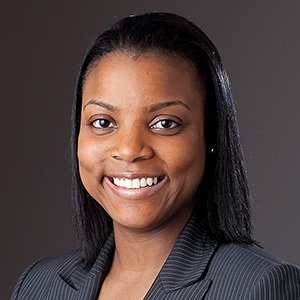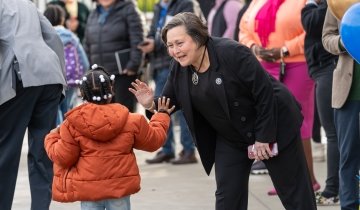
People tried to tell her she wouldn’t succeed.
Among those detractors, Raquel Rall remembers a high school teacher who told her she wasn’t college material—despite being an ‘A’ student—and she was better fitted for a life of domesticity, cooking and cleaning at home.
After her acceptance to Stanford University and every other school to which she applied, Rall said she made a point to wear her college sweatshirt in that teacher’s class every day. He never said a word about it again.
Unfortunately, that experience was not unusual for Rall, one of only a few Black students in her high school class, or for other students like her.
“So many times people told me I was never going to be successful, but my parents never doubted I was,” USC Rossier PhD student Rall said. “Everyday, my mom would ask me, ‘Who are your ancestors?’ and I would say, ‘African kings and queens,’ and she asked, ‘What does that mean?’ And I would say, “nobody can get me down.’”
Rall said she also owes much of her success to a tight community of six African American families, co-founded by her own parents, in a predominately white neighborhood. They were her greatest advocates and never stopped believing she could achieve incredible feats—academically, professionally, and personally.
“These families pooled their resources and knowledge to help Black students in the community with college tours, SAT prep and scholarships,” Rall recalled. “College was the rule and not the exception, and they didn’t let you fall when other people said you would fail.”
This parent-driven support system was so powerful in her life, and the lives of many students who followed her, that Rall is now researching the role of collective parental involvement for African American students as a research assistant for the USC Pullias Center for Higher Education at Rossier. She has presented her findings at two national conferences and even won a prize for her research on the topic at the 4th Annual Graduate Research Symposium at USC.
“We know that parents matter,” said USC Pullias Center Director William G. Tierney, “but Raquel’s work will bring texture and understanding to what parents do so they will better understand which activities matter more than others.”
The parent group is now formalized as the Council of African American Parents, and has supported more than 2,500 alumni in the 21 years of its existence. Rall has not yet found similar models employed in the region, but hopes to encourage its replication with her research.
“There is community cultural wealth, and when there are so few Black students—and we know race matters, everyone has a role to play and can bring something to the table,” she said. “These parents empowered themselves to be institutional agents for Black students in the community.”
Rall said these parental support systems do more than push students academically; they also connect them to their cultural heritage: “There is the African principle of ‘Sankofa’ that says, ‘Look back to the past to build a better future,’ and when we’re addressing issues in education, we must be cognizant of where we came from and where we want to go.”
The intersection of race and education guides Rall’s work as a researcher, and has been integral to her own drive to achieve.
“We have family members who were excluded from higher education because of the color of their skin, so I was always told, “you need to go to college, get all As, be in the front, because others will say that you can’t,” Rall said. “As much as I fought for myself, I was fighting for them.”
Now she is fighting for the next generation, and aims to be a university president or provost someday.
“My parents, ancestors, teachers all paved the way for me,” Rall said. “I want to ensure that students who come behind me have access to quality education, realize their goals and not let anyone limit them. Even if they are the first one or the only one, there will always be a second.”




